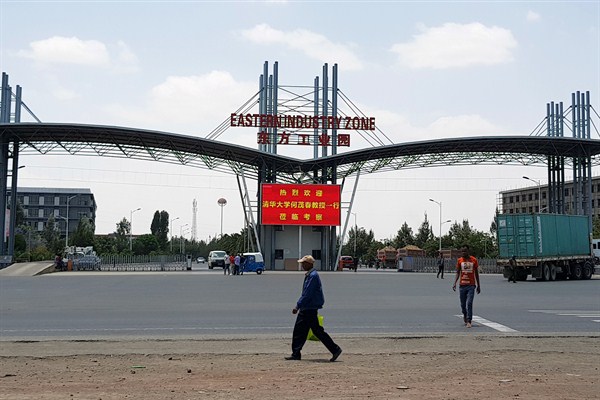DAKAR, Senegal—When National Security Adviser John Bolton unveiled a new U.S. strategy for Africa in December, commentators were quick to notice that its overarching purpose is containing China. According to Bolton, China, and to a lesser extent Russia, are “deliberately and aggressively targeting their investments in the region to gain a competitive advantage over the United States.” He claimed that China’s “predatory practices stunt economic growth in Africa, threaten the financial independence of African nations, inhibit opportunities for U.S. investment, interfere with U.S. military operations, and pose a significant threat to U.S. national security interests.”
A more deliberate reading of Bolton’s speech, however, shows that it was also a welcome endorsement of American economic engagement to help foster growth across the continent. The strategy, as outlined by Bolton, is built on three pillars: advancing American and African prosperity through increased U.S. commercial ties in Africa; enhancing security through counterterrorism efforts; and promoting American interests and African “self-reliance” through a more targeted and selective use of U.S. foreign aid. Its signature initiative, called “Prosper Africa,” aims to support U.S. investment across the region, improve the business climate and expand Africa’s private sector and middle class.
Bolton is correct that Chinese influence in Africa is growing more rapidly than America’s. Yet by fixating on China, this new U.S. Africa strategy suffers from two fundamental paradoxes that will undermine its dual goals of containing China and developing a prosperous African continent through U.S. investment. First, blatantly admitting that Africa is still not a U.S. foreign policy priority will make it harder for U.S. companies to court goodwill with African markets or win government contracts. Second, increasing commercial ties with African countries in order to advance prosperity, security and stability is what China has already been doing for decades in Africa. Boasting about a new U.S. strategy in Africa that looks a lot like China’s, while criticizing Beijing’s very approach, undermines American credibility.

